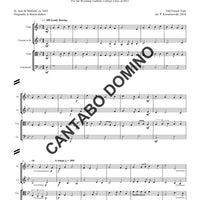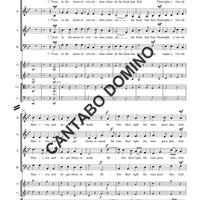Twas in the Moon of Wintertime (with instruments)


Twas in the Moon of Wintertime (with instruments)
If you are purchasing for multiple performers, please enter the number of copies you will be making of this piece, as only one download will be available per item purchased.
This lovely song has the distinction of being the first North American Christmas carol in history. According to Helen Hull Hitchcock, “Father de Brébeuf wrote the Huron language Christmas hymn, Jesous Ahatonhia, which he adapted from a sixteenth century French folk song [Une Jeune Pucelle]. The Hurons who escaped the Iroquois attacks preserved the hymn. They later settled at Loretto, near Quebec, led by other missionaries. Father Étienne de Villeneuve recorded the words of the hymn, which were found among his papers following his death in 1794.”
We see in this carol a fine instance of genuine inculturation, as St. Jean de Brébeuf strove to express the universal truths of Christian faith in an idiom intelligible to the Hurons among whom he preached.
In 2010, I made this arrangement for SATB choir, with flute, clarinet, viola, and cello.
Another version is available for SATB a cappella choir.







